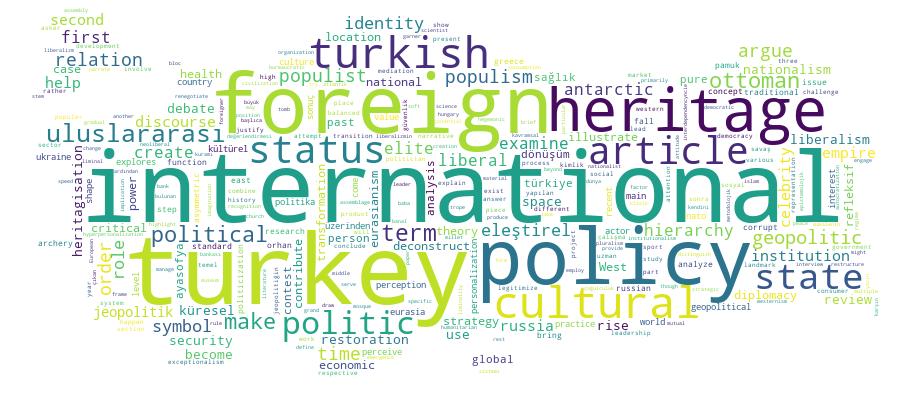Koharik Yanık, Lerna
Loading...

Profile URL
Name Variants
Koharik Yanik,L.
K.,Lerna
K., Lerna
Koharik Yanık, L.
Lerna, Koharik Yanik
Lerna KOHARIK YANIK
Koharik Yanik, Lerna
KOHARIK YANIK, LERNA
Koharik Yanık, Lerna
Lerna Koharik Yanık
L. Koharik Yanık
KOHARIK YANIK, Lerna
Koharik Yanık, LERNA
Koharik Yanik,Lerna
Koharik Yanık,L.
LERNA KOHARIK YANIK
Yanık, Lerna Koharik
Yanık, Lerna K.
Yanık, Lerna
Yanik, Lerna K.
Yanik, Lerna K. K.
Yanik, Lerna K.
Yanik, Lerna K. K.
K.,Lerna
K., Lerna
Koharik Yanık, L.
Lerna, Koharik Yanik
Lerna KOHARIK YANIK
Koharik Yanik, Lerna
KOHARIK YANIK, LERNA
Koharik Yanık, Lerna
Lerna Koharik Yanık
L. Koharik Yanık
KOHARIK YANIK, Lerna
Koharik Yanık, LERNA
Koharik Yanik,Lerna
Koharik Yanık,L.
LERNA KOHARIK YANIK
Yanık, Lerna Koharik
Yanık, Lerna K.
Yanık, Lerna
Yanik, Lerna K.
Yanik, Lerna K. K.
Yanik, Lerna K.
Yanik, Lerna K. K.
Job Title
Prof. Dr.
Email Address
Main Affiliation
Political Science and International Relations
Status
Current Staff
Website
ORCID ID
Scopus Author ID
Turkish CoHE Profile ID
Google Scholar ID
WoS Researcher ID
Sustainable Development Goals
15
LIFE ON LAND

0
Research Products
16
PEACE, JUSTICE AND STRONG INSTITUTIONS

1
Research Products
14
LIFE BELOW WATER

0
Research Products
6
CLEAN WATER AND SANITATION

0
Research Products
3
GOOD HEALTH AND WELL-BEING

0
Research Products
17
PARTNERSHIPS FOR THE GOALS

5
Research Products
4
QUALITY EDUCATION

0
Research Products
2
ZERO HUNGER

0
Research Products
10
REDUCED INEQUALITIES

0
Research Products
7
AFFORDABLE AND CLEAN ENERGY

0
Research Products
13
CLIMATE ACTION

0
Research Products
1
NO POVERTY

1
Research Products
9
INDUSTRY, INNOVATION AND INFRASTRUCTURE

0
Research Products
12
RESPONSIBLE CONSUMPTION AND PRODUCTION

1
Research Products
8
DECENT WORK AND ECONOMIC GROWTH

1
Research Products
11
SUSTAINABLE CITIES AND COMMUNITIES

2
Research Products
5
GENDER EQUALITY

0
Research Products

This researcher does not have a Scopus ID.

Documents
34
Citations
368

Scholarly Output
30
Articles
21
Views / Downloads
272/3008
Supervised MSc Theses
2
Supervised PhD Theses
1
WoS Citation Count
141
Scopus Citation Count
105
WoS h-index
7
Scopus h-index
7
Patents
0
Projects
0
WoS Citations per Publication
4.70
Scopus Citations per Publication
3.50
Open Access Source
16
Supervised Theses
3
Google Analytics Visitor Traffic
| Journal | Count |
|---|---|
| International Studies Review | 2 |
| Turkish Studies | 2 |
| Cooperation and Conflict | 2 |
| Globalizations | 1 |
| International Affairs | 1 |
Current Page: 1 / 4
Competency Cloud


